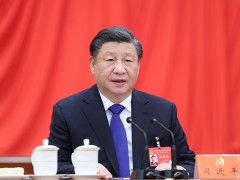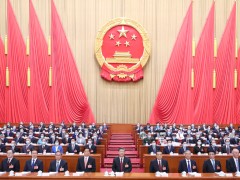Data from China's Ministry of Human Resources and Social Security showed that 10.01 million new jobs were created in cities and towns across the country from January to September 2022, as the government kept employment stable through a number of policies.
Due to the impact of the sporadic flare-ups of COVID-19, China has rolled out a series of policies including providing subsidies and providing employment guidance to address difficulties faced by individual entrepreneurs and college graduates.
The policies, including reducing social insurance rates for unemployment and work-related injuries, deferring payment of social insurance premiums for endowment, unemployment and work-related injuries, and offering rebates for maintaining stable employment and training subsidies for workers, have reduced burdens on enterprises by more than 280 billion yuan ($39 billion).
The country encourages entrepreneurial investment institutions and social capital to support the development of individual entrepreneurs, as well as urging financial institutions to develop and provide financial products and services suitable for the development of individual entrepreneurs, while expanding the scale and coverage of loans.
At the same time, the coverage of the policy has been further expanded to include university graduates who have not been employed within two years of leaving school and youth aged 16 to 24 who are registered as unemployed. From January to September 2022, more than 72.7 billion yuan ($10.1 billion) was spent on employment subsidies nationwide.
Supportive policies are a major factor in a stable job market for key groups. To tackle the high youth unemployment rate, the nation has increased efforts to help unemployed college graduates in job seeking and it has implemented special skill training programs for young people.
In addition, the employment-assistance program for disadvantaged groups has been carried out continuously, including keeping the channels open for unemployment registration and ensuring the re-employment of those who lost jobs. As of the end of September, the employment scale of people lifted out of poverty had reached 32.69 million.
Among them, vocational skills training is an important driving force to help many unemployed workers find jobs. By the end of September, government-subsidized vocational skills training had been provided to more than 16 million people.
The improved unemployment rate was the result of efficient coordination between epidemic prevention and economic and social development, as well as the vigorous implementation of policies to stabilize growth and employment. Sustained economic recovery, various rescue policies aimed at market entities and emerging of new industries and jobs are expected to further stabilize employment, according to the authorities.



